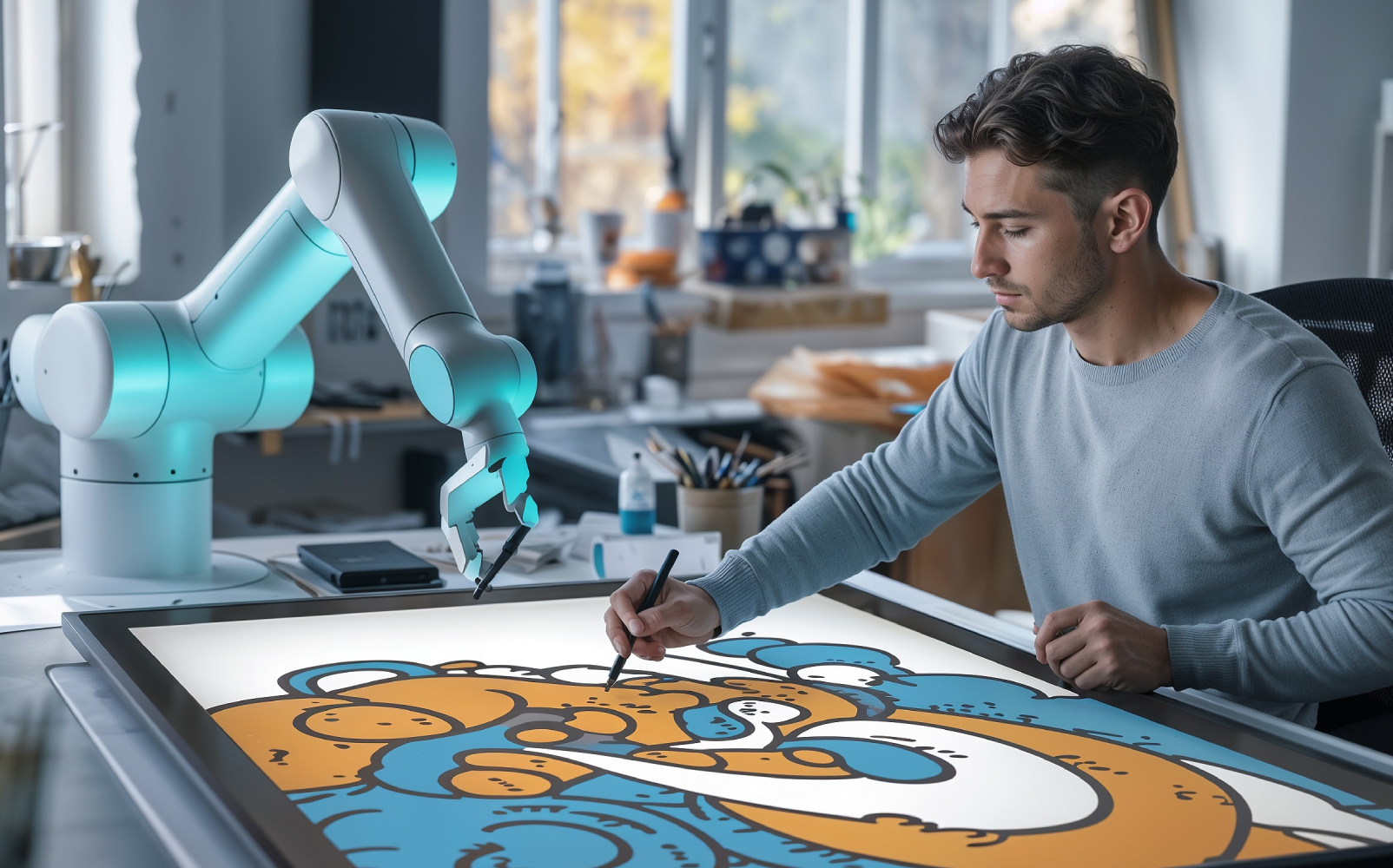How AI is Revolutionizing the Creative Industry
In recent years, artificial intelligence (AI) has emerged as a transformative force across various sectors, and the creative industry is no exception. From graphic design to music composition, AI is reshaping how creative professionals work and pushing the boundaries of what's possible. As we stand on the cusp of this technological revolution, it's crucial to understand how AI is impacting creativity and what it means for the future of the industry.
What is AI in the Creative Industry?
AI in the creative context refers to machine learning algorithms and systems that can perform tasks traditionally requiring human creativity. These systems can analyze vast amounts of data, learn patterns, and generate original content or assist in the creative process.
How AI is Transforming Creativity :
- Enhancing Efficiency and Productivity
AI tools can automate time-consuming tasks like image editing or basic design work, allowing creatives to focus on higher-level conceptual thinking.
- Generating Ideas and Inspiration
AI can analyze trends and generate numerous ideas quickly, serving as a powerful brainstorming tool for creatives.
- Personalizing Content at Scale
AI enables the creation of personalized content for large audiences, tailoring experiences to individual preferences.
- Pushing Artistic Boundaries
AI can create entirely new forms of art and design, challenging our perceptions of creativity and authorship.
- Improving Collaboration
AI-powered tools can facilitate better collaboration between team members, even across different time zones and languages.
AI Applications in Creative Fields :
- Graphic Design: AI can generate logos, suggest colour palettes, and even create entire layouts based on input parameters.
- Content Creation: AI-powered writing assistants can help generate articles, social media posts, and even creative stories.
- Music and Sound Design: AI algorithms can compose original music or suggest chord progressions and melodies.
- Video Production: AI can assist in video editing, colour grading, and even generating realistic synthetic media.
- Advertising: AI can analyze consumer data to create more targeted and effective ad campaigns.
Challenges and Considerations
- Ethical Concerns: Questions about copyright, originality, and the role of human creativity in an AI-driven world need addressing.
- Job Displacement Fears: There's concern about AI replacing human creatives, though many argue it will augment rather than replace human creativity.
- Quality Control: While AI can generate content quickly, ensuring consistent quality and Relevance still requires human oversight.
- Learning Curve: Adopting AI tools may require significant training and adaptation for creative professionals.
Conclusion
AI is undoubtedly revolutionizing the creative industry, offering new tools, possibilities, and challenges. While it may change how creative work is done, the core of creativity—human imagination and emotional intelligence—remains irreplaceable. As we move forward, the most successful creatives will likely be those who can effectively harness AI's power while maintaining their unique human touch. The future of creativity isn't just human or just AI—it's a powerful collaboration between the two.
"AI is not here to replace human creativity but to amplify it."


